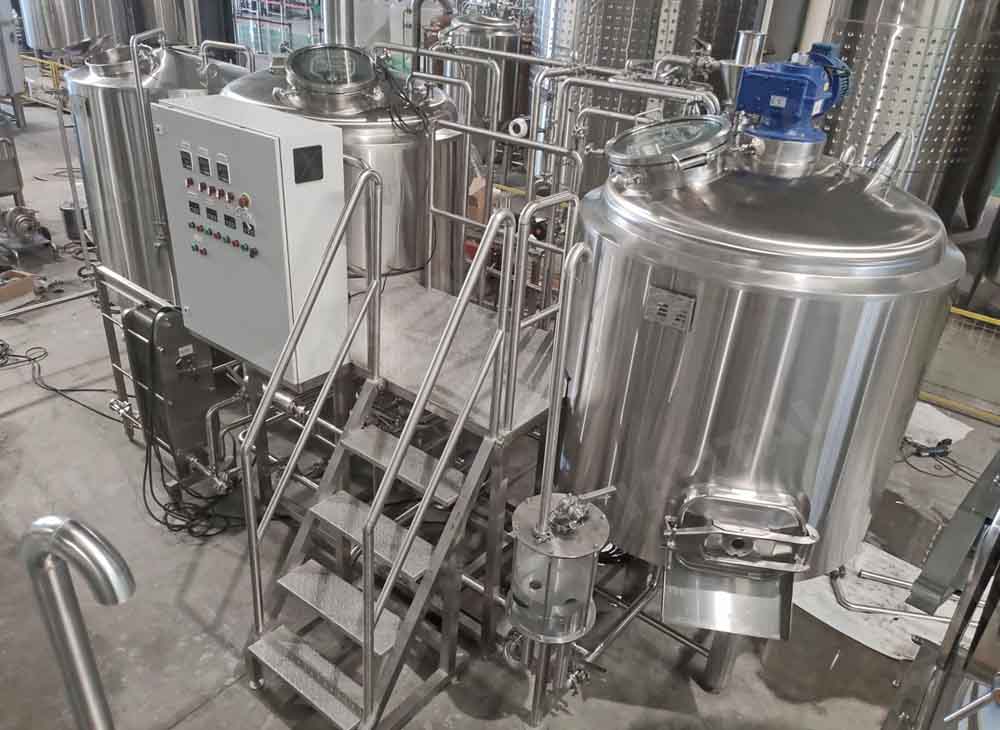Who should start a craft brewery
- Oct 16, 2021
- 154
- tiantai
So you think you want to go into the beer industry? There are many questions you should ask yourself before pursuing this challenging and costly business venture:
Do you love beer?
Can you clean all day long?
Are you able to work more than 40 hours per week?
Do you have sales and marketing skills?
Are you a good recordkeeper?
Can you afford to work for years without seeing a profit?
Do you have something to offer that no one else can?
Do you have good equipment-repair skills?
Are you comfortable asking for funding?
There is a lot more to the business than just brewing and drinking beer. Unless you are heavily funded and can hire a full crew right away, you may spend hours a day cleaning, then taking the rest of the day to manage your books, sales, vendors and customers. And the brewing process never sleeps, so you may also work nights and weekends. In fact, many small-brew business owners keep their day jobs, brewing nights and weekends until they can afford to pay themselves a salary. Despite the challenges, most brewery owners say the effort is worth it.
The basics
Before you embark on the brewery journey, you need to nail down the basics: your new brewery's name and location. Learn more about these steps below.
1. Choose a name.
Choosing a name for your business is an essential first step in opening your brewery. It can also be one of the most difficult. You'll need a name that speaks to your new business's brand identity and values. If you're stuck on ideas, reach out to a marketing or branding professional to help you figure out what's right for your business.
2. Choose your business structure.
At its core, creating a business separates your personal assets and liabilities from those your new brewery may incur. If your business has multiple stakeholders, the business structure also clarifies who owns what, who is responsible for what, and the rights each owner has. Speak with a business attorney to determine the right type of business entity for you.
3. Trademark your brewery or beer name.
Once you select a name for your brewery or beer, protect your intellectual property with a trademark. Through this process, you'll submit your name to the U.S. Patent and Trademark Office for consideration. The USPTO will weigh aspects such as the uniqueness of your name and whether another company in a comparable category has the same or a similar trademark already. While in theory you could submit a trademark application yourself, consider speaking with an IP attorney who can help you navigate the process and overcome any potential challenges with your application.

4. Find a location.
Your location is key to your success. It sets the tone of the business and dictates whether your brewery is a destination people will go out of their way to visit or a neighborhood spot locals will frequent.
Once you choose your location, be sure that your name, address, and phone number – known as your NAP – are the same in every online listing.
"Your name, address, and phone number need to stay updated across the entire internet to help customers find you," said Jason Bass, founder of Brewery Hours. "No matter which app, map, search engine, social network, or directory your customers use, they need the right information at their fingertips. What matters most is that your customers can find accurate and complete basic information about where your brewery is located and when they can come enjoy your products."
5. Training and education
There is a lot to learn if you want to become a successful brewer. Experts recommend that even seasoned home brewers spend time working in a brewery before starting their own. Entry-level work involves a lot of cleaning, sterilizing and other tedious tasks, but you'll learn the daily routines of a busy brewery. After you put in some time, you can move up and learn additional job skills that pay more, but it's worth your while to learn all the jobs involved in a productive brewery.
If you have the time and resources, formal training programs are also available, including university degrees. States such as Michigan, California, Colorado, Oregon and Missouri offer certificates and four-year degrees in brewery management. International schools are also available in countries such as Belgium, Germany and the United Kingdom. Alternatively, you can find online courses and even free programs. Portland State University offers a certificate program that focuses on the business portion of running a brewery, while CraftBeer.com offers free and low-cost educational opportunities.
Did you know?Did you know? Experts recommend working in a brewery before starting one. Additionally, formal educational resources are available, including university degrees and certificate programs that focus on brewery management.
Derrick
Sales Manager
[email protected]
Tiantai Beer Equipment
Do you love beer?
Can you clean all day long?
Are you able to work more than 40 hours per week?
Do you have sales and marketing skills?
Are you a good recordkeeper?
Can you afford to work for years without seeing a profit?
Do you have something to offer that no one else can?
Do you have good equipment-repair skills?
Are you comfortable asking for funding?
There is a lot more to the business than just brewing and drinking beer. Unless you are heavily funded and can hire a full crew right away, you may spend hours a day cleaning, then taking the rest of the day to manage your books, sales, vendors and customers. And the brewing process never sleeps, so you may also work nights and weekends. In fact, many small-brew business owners keep their day jobs, brewing nights and weekends until they can afford to pay themselves a salary. Despite the challenges, most brewery owners say the effort is worth it.
The basics
Before you embark on the brewery journey, you need to nail down the basics: your new brewery's name and location. Learn more about these steps below.
1. Choose a name.
Choosing a name for your business is an essential first step in opening your brewery. It can also be one of the most difficult. You'll need a name that speaks to your new business's brand identity and values. If you're stuck on ideas, reach out to a marketing or branding professional to help you figure out what's right for your business.
2. Choose your business structure.
At its core, creating a business separates your personal assets and liabilities from those your new brewery may incur. If your business has multiple stakeholders, the business structure also clarifies who owns what, who is responsible for what, and the rights each owner has. Speak with a business attorney to determine the right type of business entity for you.
3. Trademark your brewery or beer name.
Once you select a name for your brewery or beer, protect your intellectual property with a trademark. Through this process, you'll submit your name to the U.S. Patent and Trademark Office for consideration. The USPTO will weigh aspects such as the uniqueness of your name and whether another company in a comparable category has the same or a similar trademark already. While in theory you could submit a trademark application yourself, consider speaking with an IP attorney who can help you navigate the process and overcome any potential challenges with your application.

4. Find a location.
Your location is key to your success. It sets the tone of the business and dictates whether your brewery is a destination people will go out of their way to visit or a neighborhood spot locals will frequent.
Once you choose your location, be sure that your name, address, and phone number – known as your NAP – are the same in every online listing.
"Your name, address, and phone number need to stay updated across the entire internet to help customers find you," said Jason Bass, founder of Brewery Hours. "No matter which app, map, search engine, social network, or directory your customers use, they need the right information at their fingertips. What matters most is that your customers can find accurate and complete basic information about where your brewery is located and when they can come enjoy your products."
5. Training and education
There is a lot to learn if you want to become a successful brewer. Experts recommend that even seasoned home brewers spend time working in a brewery before starting their own. Entry-level work involves a lot of cleaning, sterilizing and other tedious tasks, but you'll learn the daily routines of a busy brewery. After you put in some time, you can move up and learn additional job skills that pay more, but it's worth your while to learn all the jobs involved in a productive brewery.
If you have the time and resources, formal training programs are also available, including university degrees. States such as Michigan, California, Colorado, Oregon and Missouri offer certificates and four-year degrees in brewery management. International schools are also available in countries such as Belgium, Germany and the United Kingdom. Alternatively, you can find online courses and even free programs. Portland State University offers a certificate program that focuses on the business portion of running a brewery, while CraftBeer.com offers free and low-cost educational opportunities.
Did you know?Did you know? Experts recommend working in a brewery before starting one. Additionally, formal educational resources are available, including university degrees and certificate programs that focus on brewery management.
Derrick
Sales Manager
[email protected]
Tiantai Beer Equipment




